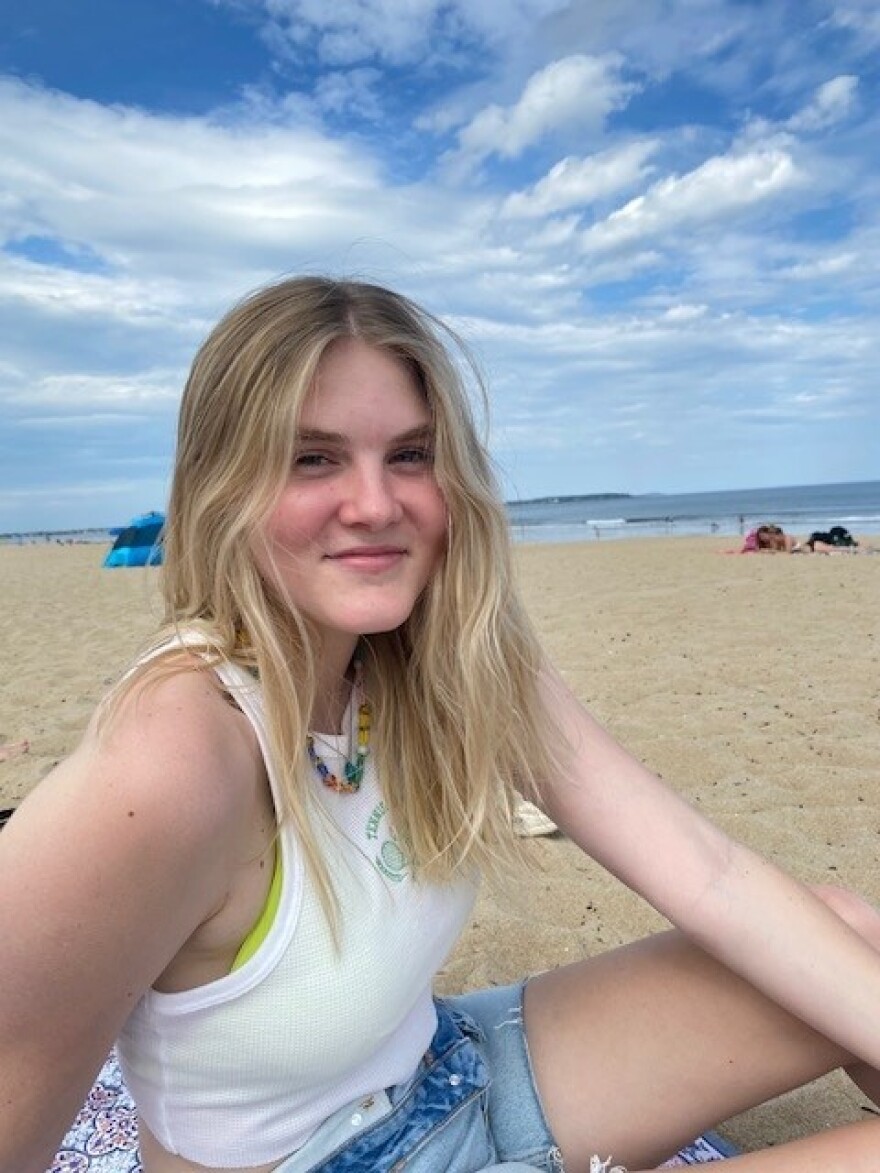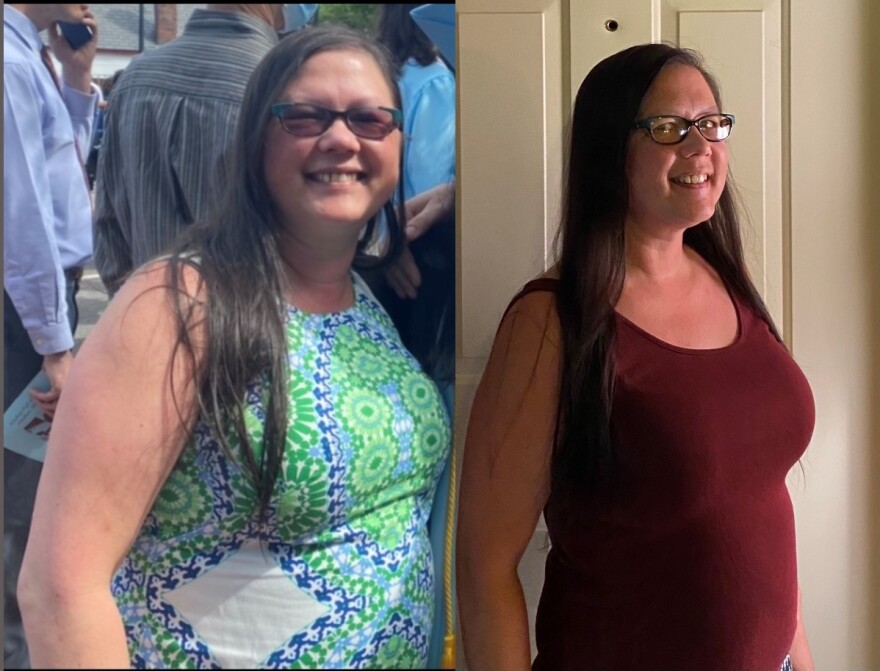You've likely heard of long-term symptoms some people experience after getting COVID-19: fatigue, brain fog, and shortness of breath. But There's another long-term symptom that's not as well known but just as debilitating. It's called parosmia, a disorder that can make food smell and taste rancid. This perplexing condition that has a profound impact on people's lives, but few treatment options.
Picture your next meal, and all the choices you have to put on your plate. Not only the foods, but the flavors. The options can seem endless. But that's not the case for 18-year-old Maille Baker of Hartland.

"For the past month or two, probably all I've eaten is like bread, condiments, pasta, and sauce, really. And avocado."
Those are the only foods Baker can stomach. Everything else smells and tastes bad. Not just mildly unpleasant. Rotten. Toothpaste is what first tipped her off that something was wrong. It was March, while Baker was a freshman in college. She had just bought a new tube and figured it was a different flavor that just didn't sit well with her.
"And then I got a hamburger at my dining hall and I took a bite of it and it tasted awful, like garbage or something, but I was just like, oh, that's college dining hall food," Baker says. "But then, I was like, this tastes the same as my toothpaste. That's so strange."
A few months before, in November, Baker tested positive for COVID-19. She says it was a relatively mild case. She had fatigue that lasted for a couple of months and some loss of smell. Then, a few months later, her sense of smell and taste became distorted. The day after she tried to eat the burger in the dining hall, she ordered a pizza. It smelled so bad, she had a friend take it away. Most food now has the same awful odor.
"If you picture yourself kind of like if you go to the dump or something to drop off your trash. And it's just like, oh that's unpleasant for like five minutes. But it's like three times as intense as that, for like more than five minutes," Baker says.
It's an experience that's shared by 42-year-old Amy Pacanza Rogers of Raymond. In January, she had a mild case of COVID-19. She lost her sense of taste and smell temporarily, then got them back. But about a month later, she started to notice a lingering odor.
First, she thought it might be household cleaners. Maybe her shampoo. Then, food started to make her gag. It tasted rancid.
"I was bringing home a pizza for my family on a Friday night and had to open all my windows in my car, I had to plug my nose, and I like threw it out of my car when I got home. And when I put it on the table, I went immediately upstairs. Like I had a total breakdown. I was like, there's something wrong with me. I can't figure it out," Rogers says.
Rogers has consulted doctors and had a battery of tests. One was a scratch and sniff smell test. Out of 45 samples, she says she could identify two: cinnamon and mint. She had a camera put down her nose to rule out inflammation as a cause. Rogers hasn't gotten a definitive answer, but smell distortion, also called parosmia, is a symptom of COVID-19. Dr. George Scangas, a rhinologist at Massachusetts Eye and Ear, says even before Covid, people experienced losses or changes in smell from viruses. And he's seen an uptick during the pandemic.
"And almost all of them have known that they had Covid in the past," Rogers says.
It's unclear how common parosmia is among people who've had COVID-19. But the phenomenon has spawned support groups on Facebook with thousands of members. It's the subject of several studies. And a group of international researchers has formed a consortium to collect data to better understand how and why Covid-19 causes smell and taste issues. Dr. Scangas says with parosmia, it's likely that the virus damages nerves in the olfactory system.
"The thought is that just those nerves, when they recover, sometimes they don't recover in the same way. They don't function in the same pathway as before, and signals can get crossed and when signals get crossed, things that used to smell good can smell bad or different. It doesn't have to be bad, it can be just different," Scangas says.
Treatments are elusive. Dr. Megan Abbott, an ear, nose and throat doctor at Maine Medical Center, says something called smell retraining is really the only option. A couple times a day, patients inhale four basic scents - floral, fruity, spicy, and resinous - in an attempt to stimulate nerves back to their normal function. Abbott says some patients do see results, but the treatment is not a home run.
"I haven't seen this work fabulously with other types of smell loss. With Covid, we don't know. We just don't have the long-term data for it," Abbott says.
In the meantime, Dr. Scangas says, prevention is key. He says most people take smell and taste for granted.
"It has a really big impact on quality of life, and that's something people should consider, in my opinion, when they're thinking about things like whether or not to get the vaccine," Scangas says.
Maille Baker tries to remain positive about her smell distortion. Other than that, she's healthy. As for Amy Pacanza Rogers, the self-described foodie, has lost 47 pounds. She has to remember to eat meals. And she wears a nose plug to block out odors. At home, while her daughter and husband share a cooked meal, she eats alone in an office. She says the condition is lonely.

"If we're invited somewhere to a BBQ, I don't go because I don't want to be rude, like your food doesn't smell good...people don't really understand," Rogers says. "It's not really your cooking, it's just to me, it doesn't smell good, it doesn't taste good, so it's not enjoyable to me."
It's more than just the enjoyment of eating that she's lost, it's sharing it with other people.



